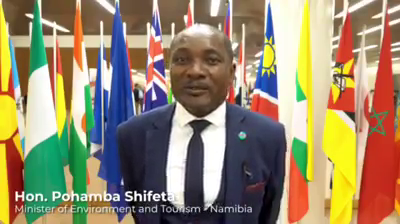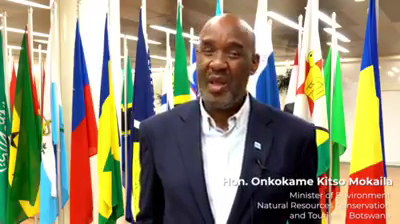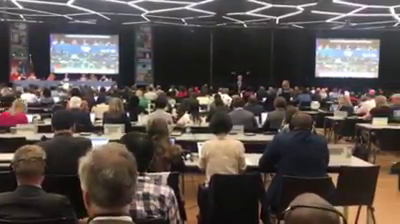CoP 18 of CITES mired in controversies, SADC gets raw deal
By Rajeev Mathew
The Convention on International Trade in Endangered Species of Wild Fauna and Flora (CITES), also known as the Washington Convention is a multilateral treaty to conserve, use and trade wild fauna and flora sustainably. That is its raison d’être.
The Conference of Parties – CoP 18 of the CITES has been mired in controversies. Several Southern African countries that have success stories to narrate and showcase are not given their dues; a feeling of defeat setting in, with CITES rewarding failures and poor performances.

CITES which was formed to address trade and commerce in wild flora and fauna has over time become a regulatory body that is doing more harm than good. It has been taken over by so-called conservationists –big named non-governmental organisations NGOs, especially animal rights activists.
The CITES CoP 18 shows how countries vote. South African Development Community/Member (SADC) nations who have been asking for (opening up trade in ivory and rhino horn are being voted out by countries that are indirectly involved in ivory or rhino horn). Countries like Syria that have appalling records when it comes to wildlife, flora and fauna are suddenly the torch-bearers for wildlife.
NGOs are at the helm of the Washington Convention and are trying to buy off nations with doles. Nations that have the capacity to sustain themselves with their resources are being offered dole and made to look like beggars. In effect, the NGOs are trying to control governments.
Similar read: Man – Leopard conflict increases : Time to manage wildlife effectively
In the ever-changing climate change scenario where human and wildlife populations are increasing and productive land shrinking, wildlife should be treated and used as a resource that is renewable. It cannot be treated with the emotional outbursts we see today.
Crocodile tears shed by these bodies to garner misplaced sympathies of people and to sway the public will ultimately benefit the NGOs and will a detriment to the nations having renewable resources that can
be traded gainfully.
Africa is a continent with great wealth and biological diversity. In what smacks of neo-colonialism many NGOs are trying to muscle their way in to control the wealth of Africa. Public sympathy is a very powerful tool and that is what they are trying to use to further their agenda.

SADC nations have now seen through this ploy and are calling out CITES for what it is. They have found that CITES is nothing better than a front for these huge multi-national NGOs. The mood at the conference of the SADC countries is anything but subdued. Hurt, they are. Retaliate they can by moving out of CITES. With the most diverse nations set to trade in wildlife, the very existence of CITES is at stake and with that maybe that of the NGOs.
Time will tell, probably in the near future as the minister for environment, natural resources, conservation and tourism, Botswana Mr Onkokame Kitso Mokila said “Great disappointment and shocking outcomes. No link to reality on the ground.”
The Namibian Minister for environment and tourism Mr Pohamba Shifeta was categorical and said that the arguments put forward were not based on science. Most who spoke do not have an elephant or a rhino to talk about and yet have the audacity to recommend and impose their views on the nations that have to deal with
them.
Probably the writing is on the wall that the edifice of CITES will crumble as the minister from Botswana Mr Onkokeme said, "CITES is long past its sell-by-date. The SADC nations should put their collective knowledge together and bring it about. This is not to divorce conservation but to prove that our model works.”
(About Author: Rajeev Mathen Mathew is a former expert member of National Biodiversity Authority and Telangana State Biodiversity Board. He is currently Wild Animal Conflicts, Wildlife Remote Surveillance, Eco Restoration and Eco Tourism consultant. The views and opinions expressed in this article are those of the author)